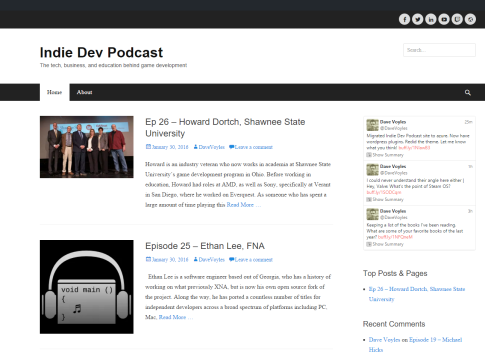
Melissa Pennock, Jacob Pennock, and Mike Schaiman
Listen to the podcast.
Download .mp3
Subscribe via iTunes
Joining me today are Game Designer / Leader Developer Jacob Pennock, Executive Producer Mike Schaiman, & Art Director Melissa Pennock of Livid Interactive.
We talk diversifying a studio, making money in the middleware marketplace, how to stay afloat as an indie, and how they use Intel’s RealSense technology and Unity to create their gesture based first person combat game, Head of the Order.
In 2010, the husband/wife team of Jacob and Melissa Pennock founded a small studio in North Carolina called Unicorn Forest Games. Unicorn Forest was mainly focused on providing outsourcing services, for games on facebook and mobile devices.
Soon after arriving in California, Jacob was introduced to Mike Schaiman, and joined the team at Helios Interactive. Helios uses a variety of technologies to build interactive experiences for consumers in retail and at large events.
In 2013, Head of the Order, a tech demo, was entered into Intel’s Perceptual Computing Challenge, and took the first place prize in the games category.
Early in 2014, Helios took notice of the potential of the game, and the saw an opportunity for the company to open a new games division. So Livid Interactive was created, under the wing of its parent company, Helios. Their latest title, Head of the Order, is a magical fantasy game played entirely with gestural spell casts. It’s format is similar to a tournament style fighting game but with magic instead of martial arts.










